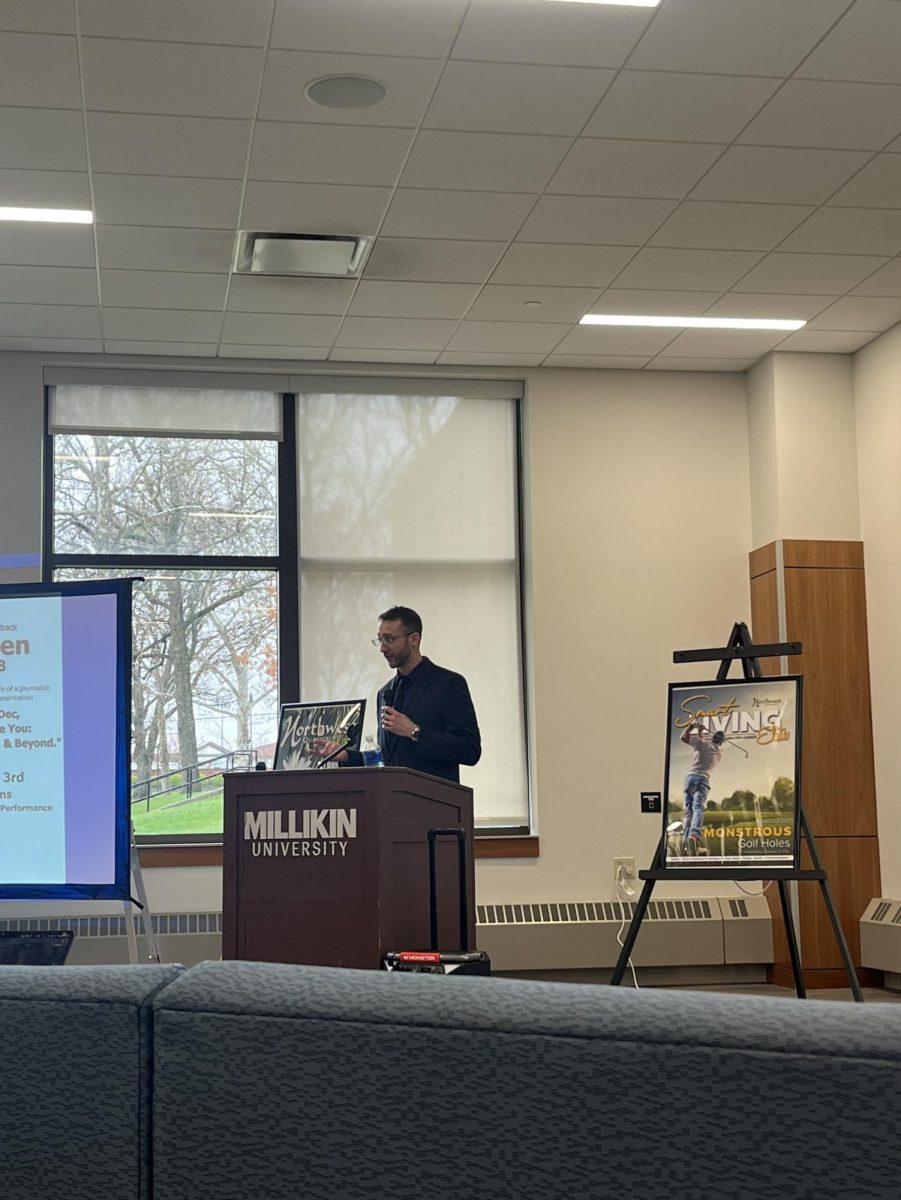Journalism is dead. Print newspapers and magazines that once covered an entire wall in the convenience store have now dwindled down to a few celebrity gossip magazines sprinkled here and there on the endcaps near perspiring Coke bottles and overpriced peanuts.
Nowadays, journalists are more conniving than lawyers and politicians combined. At least, that’s the common stance the public likes to take. Instead of trusting in the mediators between governors and the governed, the press has taken a huge hit regarding the validity of what they are reporting on in today’s politically charged climate; where the polarizing sides are constantly fighting tooth and nail against their “enemy.”
Journalism is dead, everyone seems to shout. Yet is it really dead? Or more so, is it still dying as quickly as we all are conditioned to believe?
“Journalism has changed a lot in my lifetime,” Chris Linden, Millikin alumni and current executive editor of two magazines in Rockford, Illinois, said. “And throughout my career, there is this one recurring line: print is dead.”
In Millikin’s “Where Are They Wednesday’s” speaker series, where the university invites alumni to come speak about their experiences at Millikin, Linden brought his decades-worth experience as an editor and writer to current students and faculty members.
“Well, I am here to tell you that no, it’s not,” Linden said. “Psychologically, we connect on a deeper level with things that we can touch.”
Holding a beautiful, glossy and colorful magazine in one’s hands is much more tangible as opposed to reading a messy online newspaper where ads pollute the screen.
“Magazines slow you down and are built for engagement,” Linden said.
Senses are important to the human psyche, and being allowed to hold a newspaper or book instead of scrolling on a screen creates a more meaningful relationship to the story–and in today’s world, becoming desensitized to events or people due to social media is a growing issue.
Having previous experience being the Decaturian’s executive editor nearly 20 years ago, Linden finds his experiences as both writer and editor of great value in his current career.
“Empathy is huge when you are an editor,” Linden said.
Interpersonal communication skills are something a journalist learns when talking with various people, and the skillset bleeds into the intricate balance one must strike when editing a fellow writer’s piece.
Engaging in the intensive laboratory-like atmosphere that Millikin provides its students, Linden found himself challenging his writing by constantly experimenting and taking creative risks when covering stories or crafting essays for class.
“Take the risks, even if you fail,” Linden said.
Creative risk-taking is abundant in the writing field, and challenging how writers and humans communicate is vital.
“Stay curious,” he said. “We have to ask lots of questions.”
In a world where asking questions or disrupting the flow of the norm is seen as an act of defiance, it’s a journalist’s job to prod and inform the people of what is happening, without bias.
While it’s often difficult to find a happy-medium with experimentation in one’s own writing, it is one of the only ways to improve.
“I find it hard to take risks with my own writing,” Junior Olivia Swords said. “But in journalism I think it’s important. It bridges the gap between authentic and attention-grabbing as opposed to sensationalism.”
Trust equals value, according to Linden. One must understand their audience if they are to build a rapport with them.
“It was very reassuring that Linden found a position in the field that I want to go into,” Kemper Koslofski, current editor in chief of the Decaturian, said.
“He was able to get a foothold into other fields like television,” he said.
Koslofski appreciated the encouraging words Linden had to say about the field, especially since so many believe that journalism is a dying art.
Journalists tell stories and they communicate with the public in a way that is still relevant today–and if not more important than in all of history. With so many false news sources and lack of trust in the media, it is heartening to see thriving professionals in the field, specifically one that has been “dying” for decades.


